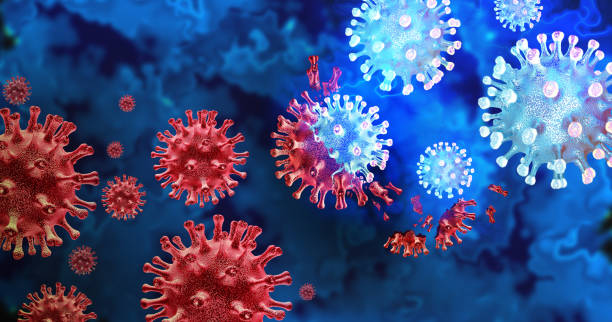Typhoid fever is a life-threatening infection as there is around 200000 People die from it every year.
Typhoid fever is usually spread in countries that have low sanitation techniques water such as ( Africa and South Asia).
It is spread through contaminated food and drink.
Numerous people ask what causes typhoid fever to be able to protect themselves from this serious trouble of infection, especially in children. Pathogenic Organism Of Typhoid Fever
Pathogenic Organism Of Typhoid Fever
Typhoid fever is caused by salmonella typhi which spreads through polluted food, drink, or water.
If you eat or drink something contaminated with the bacteria, the bacteria enter your body, travel into your intestines, and then into your blood.
In the blood, they travel to your lymph nodes, gallbladder, liver, spleen, and other parts of the body.
To control and prevent the spreading of infection, we must first identify what causes typhoid fever.

What causes typhoid fever
Improper hand hygiene
Touching the mouth without washing hands after contact with a contaminated toilet and cooking food without hand washing are common causes of typhoid fever.
Eating contaminated food
Eating food washed in water contaminated with the stool of someone infected with salmonella typhi transmets typhoid fever.
Also eating raw vegetables that have been fertilized with salmonella typhi contaminated human waste.
Drinking contaminated milk
Drinking Milk without pasteurization can transfer several bacteria including (salmonella typhi, lactobacillus, and campylobacter).
Poor sanitation facilities
Poor sanitation facilitates are common factors of typhoid transmission through fecal-oral route from stool to mouth.
Lack of establishments that facilitate hand hygiene, which is more common in rural areas and developing countries.
Also lack of water pipes which preven contamination of water by stool, and Improperly managed drinking water services all are cauese of typhoid fever transmission.

How to prevent typhoid fever?
Proper hygiene
By folloeing all behaviors that prevent the spread of typhoid fever to a new host by blocking fecal-oral contact.
Such as proper hand hygiene and the use of soap and water.
Healthy food practices
Routine kitchen cleaning, serving food with a spoon.
Washing raw food before consumption regularly (lowering the danger of contamination from "upstream" sources).
Reheating prepared meals before serving.
Sanitary water sources
Protecting water sources from being contaminated by stool through installation of piper water, tube wells, protected springs, and rainwater.
Installation acts as a barrier to prevent fecal-oral contamination.
Water treatment programs to kill salmonella typhi bacteria, it can be done by boiling, filtration, and treatment the water with chlorine.
Symptoms of typhoid fever
Symptoms of typhoid fever includes:
Fever and chills.
Headache and feeling tired all the time.
Stomach pain
Diarrhea.
Sepsis.
Complications of typhoid fever
Complications of typhoid fever includes:
Irregular heart beat and breathlessness.
Multisystem affection(meningitis, osteomyelitis
,heart inflammation, and kidney failure).
Bleeding tendancy.
Perforation that is a potentially major complication due to salmonella typhi intestinal perforation and entry into the peritonium and abdominal cavity.
Miscarriage.
Diagnosis of typhoid fever
Typhoid Fever can be diagnosed through:
Medical history
Health care provider suspect the presence of typhoid fever infection based on symptoms and patient history.
Body fluid or tissue culture
A sample of your blood, stool, urine, or bone marrow is used.
The sample is placed in an environment where bacteria grow easily.
The growth, called a culture, is checked under a microscope for typhoid bacteria.
Typhoid fever vaccination
The typhoid fever vaccination is advised for:
Visitors to regions of the world where typhoid fever is prevalent (being cautious about what you eat and drink is still important, as the typhoid vaccination is not 100% effective).
At least two weeks before departure, one dosage is advised and doses should be repeated every two years for those who are still at risk.
Typhoid fever vaccination shouid be given to those who are near a typhoid carrier and personnel in laboratories who handle salmonella typhi germs.
There are two types of typhoid fever vaccinations:
The live typhoid vaccination is taken orally from six years of age and older.
It is four pills totalone for every other day at least one week before departure, the last dosage should be taken.
Take one capsule with cold or lukewarm water approximately one hour before meals, without chewing.
The inactivated typhoid vaccination is given as an injection from two years of age and older.

What is the best cure for typhoid fever?
Treatment of typhoid fever depends on treating salmonella typhi bacteria using antibiotics.
Antibiotics must be taken promptly to treat typhoid fever.
Most common used antibiotics are (fluoroquinolones , cephalosporins , macrolides, and carbapenams).
Early diagnosis increases the likelihood of a minor infection, which may be treated at home with a course of antibiotic pills lasting seven to fourteen days.
To administer antibiotic injections for more severe cases of typhoid fever, hospital hospitalization is typically necessary.
Other treatment include drinking fluids to prevent dehydration caused by diarrhea and fever and surgery to replace the damaged area of intestin.
Summary
We have covered main important points of typhoid fever including what causes typhoid fever.
We also have covered what we should do to prevent transmission of disease.
Also we talked about vaccination against typhoid fever and treatment of typhoid fever.


You must be logged in to post a comment.